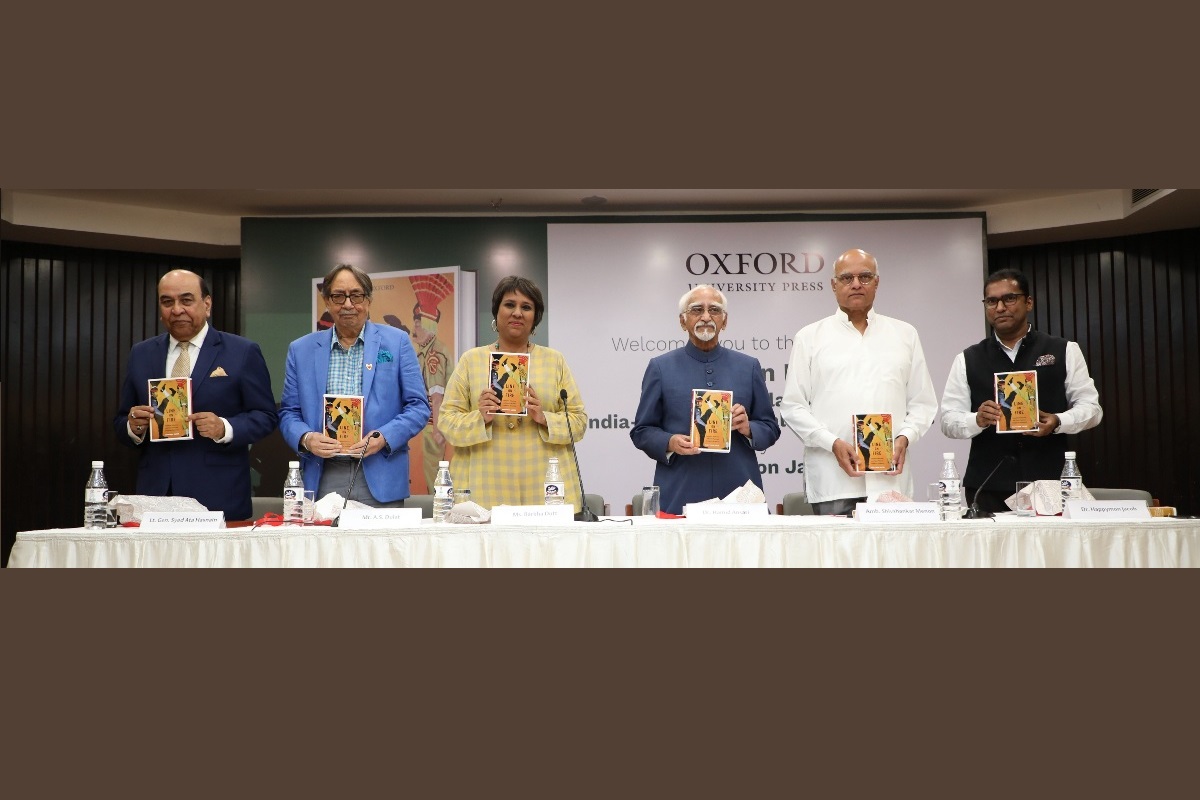Brahmastra veterans meet at Panagarh military station
Under the aegis of the Indian Army’s Eastern Command, Brahmastra Corps organised the Brahmastra Veterans Meet on Sunday at Panagarh Military Station.
According to the former NSA, a surgical strike is a very precise military term that came out of the nuclear deterrence literature.

(From left to right) Lt Gen Syed Ata Hasnain (Retd.), Former R&AW chief AS Dulat, barkha Dutt, former Vice-President Hamid Ansari, Former NSA Shivshankar Menon, JNU professor Happymon Jacob. (Photo: OUP/SNS)
Describing the 2016 surgical strike as “so-called”, former National Security Adviser (NSA) Shivshankar Menon said that putting out other meanings of military terminologies actually insults the forces.
According to the former NSA, a surgical strike is a very precise military term that came out of the nuclear deterrence literature.
Advertisement
“The idea of surgical strike is that [a] you would excise the threat i.e. cut off the threat, and, [b] you will actually strike at the roots…otherwise a nuclear surgical strike would be if you took out your adversaries nuclear weapons – that’s a surgical strike. It’s a counterforce,” Menon said when he was asked to explain his description of the surgical strikes as “so-called”.
Advertisement
The Indian diplomat, who served as NSA from 2010 to 2014 under Prime Minister Manmohan Singh, pointed out that the actual problem arises when one starts to give other meanings to military terminologies.
“The problem when you start using words, which have a precise military meaning, in different context is you are suggesting that you have managed to achieve it [the goal] but you haven’t eliminated the terrorists and you haven’t actually hit him across the board,” Menon said.
“In fact, you have hit a few launching pads. And how far from the Line (of Control) is a matter of speculation,” he added.
He clarified that this explanation of the terminology does not raise questions on the bravery of the forces.
“In fact it’s a remarkable achievement what the Indian Army does every day on that land. But I think you insult them when you start trying to put other meanings out. And I don’t think that is fair to the Indian Army,” he said.
Menon was speaking at a panel discussion in New Delhi during the launch of ‘Line of Fire’, a book on ceasefire violations by JNU Professor Happymon Jacob, on Monday in New Delhi.
The 69-year-old former diplomat also cautioned that going public with military responses might actually ramp up the escalation ladder.
“If the goal is to assert moral ascendancy, restore dominance, land grab or whatever, it is best done quietly. The moment you do it publicly, you are forcing the other side to respond. They have no choice…either they deny it or are seen by their people,” he said.
“If you keep it private you can then actually sort it out yourselves and apply reason to the problem and sort it out on the ground,” he said, adding, “Once you politicise it (military action) – this is no longer autonomous military factors, this is a whole different ballgame.
Menon, who served as India’s 27th Foreign Secretary till 2009, also pointed out that one of the major problems when discussing things such as ceasefire agreements is that India’s political context has changed fundamentally.
“The problem is that you can talk about all the technical things – doing ceasefire agreements, formalising them, meetings and a whole different things – but none of those will work without the right political context and that political context has changed fundamentally,” he said.
When told that the intentional community has taken note of India’s recent retaliations against provocations by Pakistan, Menon said that they will always “look for what’s in it for them”.
“They are opportunists. We should worry about ourselves; how we handle this (problem at the border) and where we take this,” he said.
Jacob’s book was launched jointly by former Vice-President Hamid Ansari, former R&AW chief AS Dulat, former Indian Army military secretary Lt Gen Syed Ata Hasnain and journalist Barkha Dutt besides Menon.
Published by Oxford University Press, the book, which is divided into seven chapters, takes a detailed look into the causes of the ceasefire violations at the border and tries to explain how they can themselves become the cause of escalation of conflict between the two nations.
Advertisement